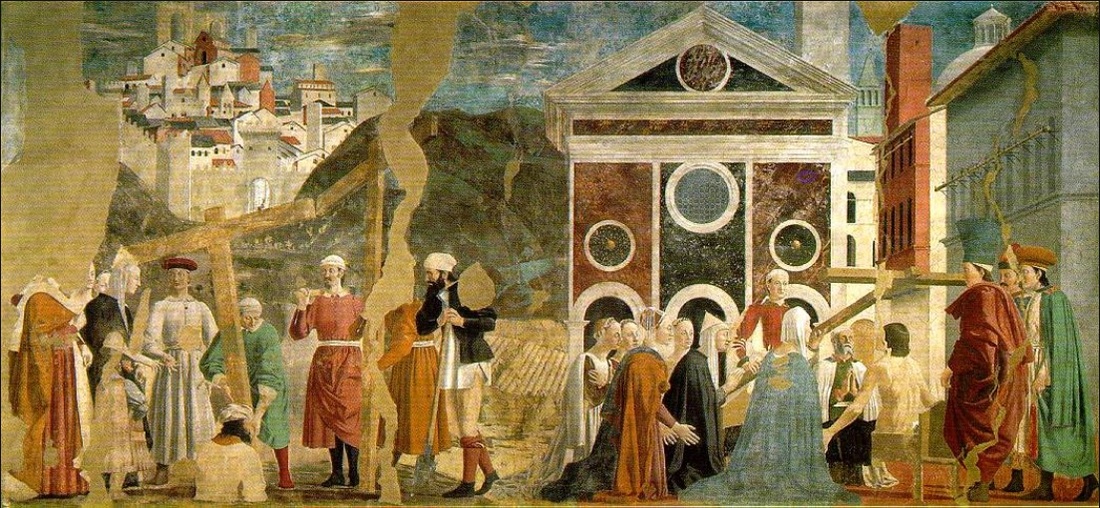|
It was a news item towards the end of prime-time news in the Netherlands and already received less coverage than previous acts of terrorism. Terrorists killing 28 Ethiopian citizens in Lybia. In Ethiopia it caused a shockwave of unbelief and anger that also culminated in some voilence during organized demonstrations at Meskel Square in Addis Ababa according to several news sources. The Ethiopian government declared three days of National mourning. Our hearts and minds and prayers are with all those who mourn their beloved and with the Ethiopian people as a whole. There is no way to describe the gruesome acts of terrorists that purposefully targeted "worshippers of the cross" like with Egyptian and Syrian Orthodox Christians earlier in the year. Ethiopia especially is a country that linked itself to what they call "The True Cross". Apart from the tremendous impact for families and friends of the victims, Ethiopian culture and society was hit in its heart. For many Ethiopian Orthodox Christians and other Ethiopians as well, Meskel (or The Finding of the True Cross) is a festival that carries a lot of meaning and both represents religious as well as cultural heritage that is treasured by all. Bed, bath and breakfast
Ironically this week the Dutch parliament prepared for a European Council meeting where its prime minister will be talking to his fellow prime-ministers discussing the 'wicket problem' of the many boat refugees in the Mediterranean trying to make it to Europe. And at the very end of the chain: Today Dutch parliament agreed on a minimum support to illegal immigrants supporting 'bed, bath and breakfast' before they will be transferred to a departure centre in the North-East of the country facilitating their 'voluntary' return to their home countries. Circular migration of a sort that politicians have not even started to comprehend. Innovation On the other end of the spectrum, I have recently joined EP-Nuffic, an organization that aims at a type of circular migration linked to knowledge and innovation. The resulting knowledge circulation should help accessing knowledge markets worldwide, solving some of the most challenging problems with water, food security and other policy priorities, while keeping our economy in shape. According to the report of the Scientific Council for Government Policy "Towards a Learning Economy", government’s main task is to develop organisations, relationships and career patterns in a way that maximises knowledge circulation. Traditionally Nuffic has been facilitating quite a number of scholarships for people from all over the world to kick-start or have a through-start with their career facilitated by a Dutch knowledge institution. Alumni of these courses are nowadays occupying important positions in governments and businesses world-wide. The program has been hugely successful and next month I will be joining an alumni event in South-Africa that brings together quite a number of alumni to see how we can better connect and stay in touch. Since 2013 EP-Nuffic even manages a program "Make It In The Netherlands" trying to persuade talented individuals to linger on for a year in the Netherlands after having completed their MSc or PhD degrees in order to tighten their relations with the Dutch. I cannot help thinking that amongst those who managed to cross the Sahara and the Mediterranean while escaping terrorists and criminal minds of smugglers and finally 'made it to the Netherlands' there must be a few good brains too good to return home very quickly (see also: http://www.migrantscontribute.com/). While starting this blog some three years ago I have stated that there are three groups of people connecting societies most effectively: entrepreneurs, students and migrants. If we could only somehow connect these groups in a meaningful manner, that would be another true cross to find.
Maria
26/4/2015 14:25:02
Congratulations on your new role at Nuffic. I understand its logic which is similar to what other immigration policies in a few enlightened countries. However for it not to contributing to brain drain from the countries that need these talents and brains the most, Nuffic should not stop at recruiting brains. It should also harness the early diaspora community to give back to their countries of origin. That is, put resources aside to send mid-career or retiring former scholars to fill technical positions that governments identify back in their countries of origin. Usually, local universities can probably benefit. Some government technical agencies too. Provide them with the salaries they were/are receiving, have a manageable period of engagement. Some may just need the platform for which to go back without much loss of economic security. From thereon, if they see investment opportunities or feel valued, they could see going back as permanent while their children may already be settled in their adopted country. Hope this closes a loop in the circularity.
Feyisa
27/4/2015 03:15:21
Dear Van Hoffen, Congratulations on your new role at EP- Nuffic Comments are closed.
|
About meMy name is Reinier van Hoffen. U®Reading
Click here for a summary.
Also find the text of a lecture Dr. Achterhuis held at the 2012 Bilderberg conference. Archives
August 2022
|
AddressNachtegaallaan 26
Ede, the Netherlands |
Telephone+31 (0)6 1429 1569
|
info@uraide.nl
|

 RSS Feed
RSS Feed
















